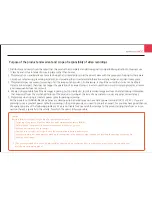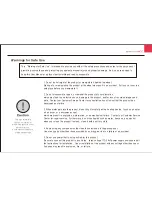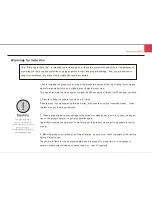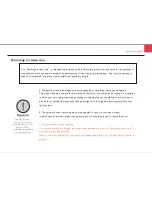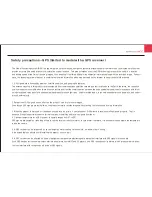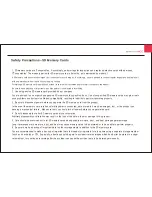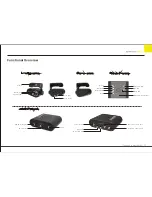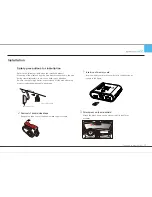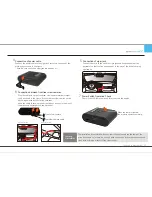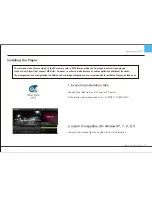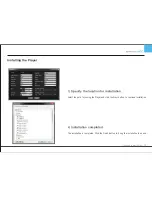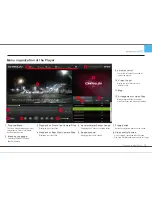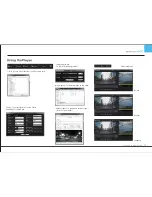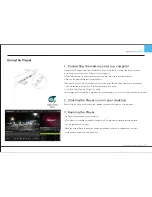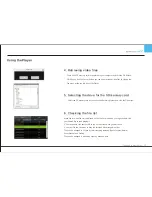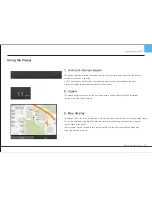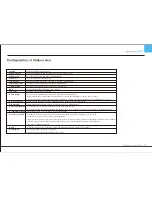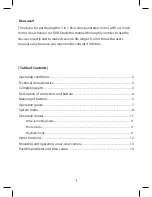
Safety precautions- GPS (limited to model with a GPS receiver)
The Global Positioning System (GPS) is a sophisticated, satellite-based, navigation system that receives data from more than 3 dedicated satellites that
provide accurate time and distance to calculate the current location. This product makes use of the GPS technology to record the vehicle’s location
and driving speed at the time of recoding images, thus enabling it to offer additional circumferential information along with the recorded image. Further-
more, the technology allows the user to combine the location information with a map serviced on the Internet to keep track of his/her travels.
1. GPS signals are influenced by weather, satellite condition, and geographic features.
The antenna mounted in this product receives signals from communications satellites revolving on their orbits above the Earth; therefore, the reception
quality may become unstable when there are such factors as affect the communication between two ends as weather conditions (cloudy days with thick-
ening clouds and rainy days) and surrounding topography (around high-rises, under elevated roads, in tunnels and underground roadways, and under-
ground parking lots).
2. Reception of GPS signals has no effect on the product’s ability to record images.
Even though GPS signals are lost halfway, the product normally records images without writing the location and driving information.
3. When the product is first used or it has been unused for a long time, it can take about 5~30 minute to receive satellite signals properly. That is
because it takes longer time to search for the locations of satellites and receive signals from them.
4. Optimum temperature for a GPS receiver to operate ranges from 0℃ to 50℃.
GPS signals are unstable or take longer time to reach a receiver in hot summer or in cold winter; therefore, it is desirable to keep stable the temperature
inside the vehicle.
5. A GPS receiver can be influenced by such element as metal coating on the vehicle’s window or dark tinting.
It is advised that you should avoid installing the product on such part.
6. A GPS receiver can be affected by items of equipment that generate electromagnetic waves that interfere with GPS signals in the vehicle.
Such GPS devices include some wireless starters and alarms, some MP3 and CD players, and GPS-based security alarms, which produce radio waves
that can interfere with reception by a device of GPS signals.


